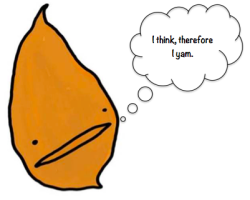Self-awareness is the silent companion to all the leadership competencies. It infiltrates decision-making when you’re trying to decide if you want to study for that geometry exam or if you want to binge watch Netflix. It’s right there with collaboration when you’re working on a group project and you know you have the confidence to take the lead. Self-awareness is extremely valuable both personally and professionally, yet it is often challenging for many adults. It requires you to be aware of and acknowledge weaknesses as well as take ownership over failures, which can no doubt sometimes prove painful. Many people seem to be more comfortable with exploring themselves via the more superficial ‘selfie-awareness’ (self-portrait photographs usually posted to social media) to boost their confidence and portray only the most flattering aspects of themselves.
I’d argue though that the sooner a person is ingrained with the deeper process of self-awareness and reflection, the more successful the leadership and performance throughout life, and the happier the life in general. College is often a time for self-exploration, but there is no reason to wait until students are about to graduate or in college to learn about self-awareness.
In school, students are often presented with information that relates to the world around them, like facts, dates, and the like, but how much of the learning is focused on THEM and gives students the opportunity to explore their learning styles, interests, and natural skills? Or a step further, are accommodations made once a learning style is discovered to help the student succeed?
Self-awareness is KEY in learning. Students who believe themselves to be competent not just in a subject, but across the board, tackle the work differently. Self-awareness helps students differentiate the skills and concepts they know from what they still need to learn. Self-awareness is a higher-order brain function that when ‘exercised’ actually changes the brain structure and makes the brain open to more learning.
I would encourage you to try one of the below recommendations on how to embed self-awareness into your classroom:
• Give the students a role in planning the lesson (researcher, secretary, editor-in-chief, etc.). Watch engagement and ownership soar!
• After an activity, leave an extra 10 minutes and provide guided questions for self-reflection and journaling.
• Encourage students to think about themselves beyond a label.
i.e. Underlying qualities of a ‘jock’ might be determination, dedication, love of outdoors, etc.
• Modify the lesson structure to move away from the textbook and into real world, problem-based learning experiences. This gives students to
opportunity to explore in a safe setting.
• Use essay exams in lieu of multiple choice exams.
• Offer multiple opportunities for students to choose learning experiences based on interest
~Michelle, Chief Program Officer
